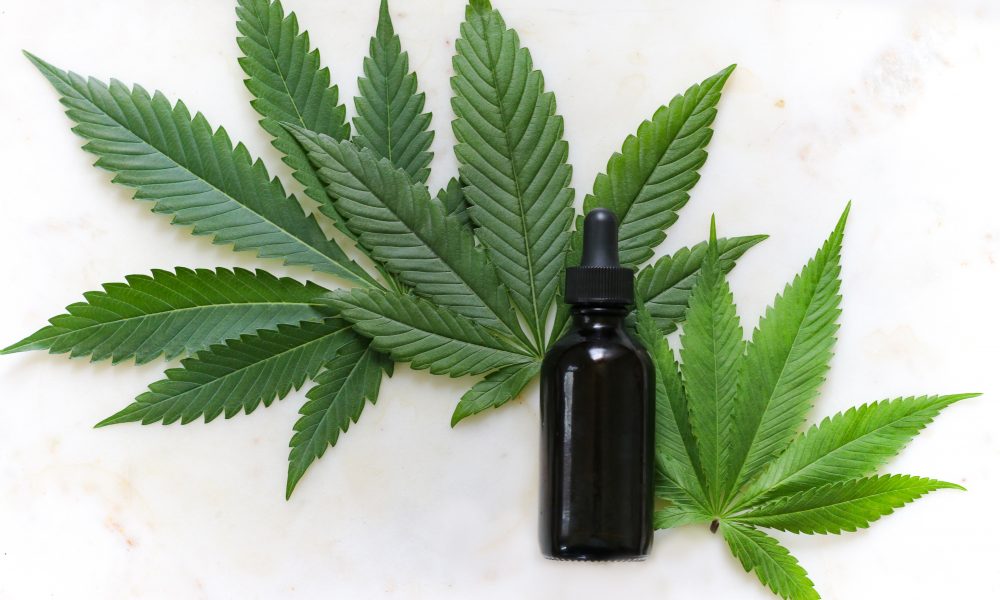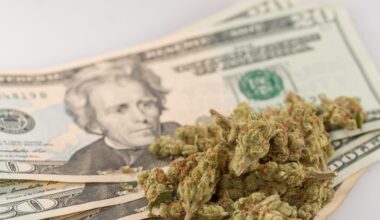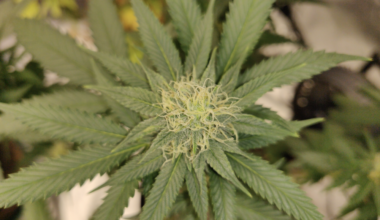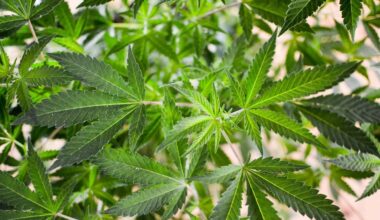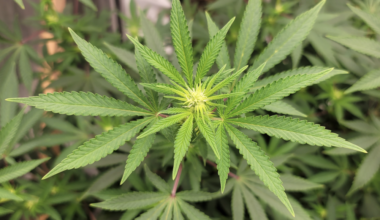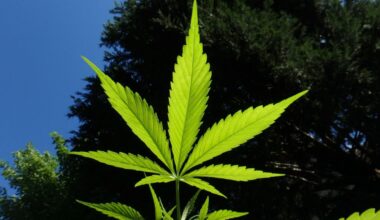The top Republican on a key congressional committee is calling on leadership to schedule a hearing to hold the Food and Drug Administration (FDA) accountable for its lack of action to set regulations for CBD and delta-8 THC products.
Rep. James Comer (R-KY), ranking member of the House Oversight and Reform Committee, said in a letter to Chairwoman Carolyn Maloney (D-NY) that purpose of the meeting should be to “examine the failure of [FDA] to develop a regulatory regime that effectively oversees the sale of hemp-derived extracts such as cannabidiol (CBD).”
He said that the current lack of regulations has led to mislabeling, contaminated products and advertising that targets children.
“We must hear directly from the FDA to ensure the agency has a plan to institute a regulatory solution that can effectively monitor the sale of hemp products and protect the health of children,” he wrote.
The federal legalization of hemp under the 2018 Farm Bill was a bipartisan effort, and members across the aisle have since been pushing for further reforms to create a regulatory framework for products that are derived from the crop. FDA is cognizant of the complaints, but it’s so far declined to enact rules providing for the marketing of legal cannabinoids in food products.
“The FDA’s failure to establish a regulatory regime for hemp is enabling mislabeled products that contain more THC than the legal limit to be sold,” Comer said, referencing the 0.3 percent THC limit per dry weight for legal hemp items. “Unfortunately, mislabeled products have caused many adverse health events in children.”
While the GOP congressman seems to be supporting regulations that would correct issues on mislabeling and contamination of CBD products, he also brought up the fact that companies are increasingly marketing items containing delta-8 THC, an intoxicating cannabinoid commonly synthesized using CBD that falls into an especially grey legal area because it’s not expressly prohibited under federal law.
Longtime #hemp champion + Ranking Member of the House Committee on Oversight & Reform @JamesComer is calling for a hearing in his committee to examine @US_FDA‘s failure to develop a regulatory regime overseeing sales of hemp-derived extracts such as #CBD👉https://t.co/rc35At87Jh pic.twitter.com/JF8KU0qaMU
— US Hemp Roundtable (@HempRoundtable) May 4, 2022
“It is troubling that the product contains intoxicating chemicals, giving users the ‘high’ feeling of federally illegal marijuana,” he wrote in the letter, which was highlighted by the U.S. Hemp Roundtable on Wednesday. “The production and sale of Delta-8 THC undermines the congressional intent of the 2018 Farm Bill. The bill was intended to legalize non-intoxicating hemp products, not a synthetic alternative to marijuana.”
“The newly confirmed FDA commissioner, Robert Califf, has not publicly expressed an official position on this critical issue. We respectively request that the Committee hold a hearing in order for the FDA to explain how it plans to resolve the serious issue of mislabeled CBD products. By doing so, we will empower good-faithed hemp farmers and protect American consumers—especially children—from intoxicating cannabis.”
To be sure, Califf, who previously served a short stint as the FDA head under the Obama administration, hasn’t been especially vocal about marijuana issues. But at a 2016 federally hosted research summit on cannabis, he recognized various therapeutic applications for the plant and its components and emphasized that the agency is interested in promoting research and development.
He also said that he’s personally prescribed a cannabinoid drug as a doctor.
For his part, Comer has been a key ally for the hemp industry, touting his state’s burgeoning industry and even bringing CBD products to a congressional hearing in 2019.
But while FDA has taken steps to issue warnings against select CBD and delta-8 THC companies that are peddling products with allegedly misleading medical claims, the agency has yet to implement specific marketing regulations for the cannabinoids.
For what it’s worth with respect to delta-8 THC, the Drug Enforcement Administration (DEA) has conceded that the cannabis component is generally unregulated because current statute only bans cannabis products with more than 0.3 percent delta-9 THC by dry weight.
FDA, meanwhile, had repeatedly said it is exploring regulatory pathways to allow for CBD commerce, and bipartisan lawmakers have introduced legislation session to force a change.
FDA was mandated under appropriations legislation enacted in 2019 to provide an update on its regulatory approach to CBD, and it did so in 2020. The update stated that “FDA is currently evaluating issuance of a risk-based enforcement policy that would provide greater transparency and clarity regarding factors FDA intends to take into account in prioritizing enforcement decisions.”
Read the letter from Comer on holding a committee hearing on FDA and cannabis below:
South Carolina Medical Marijuana Bill Dies On House Floor Following Procedural Challenge
Photo by Kimzy Nanney.
Medical Disclaimer:
The information provided in these blog posts is intended for general informational and educational purposes only. It is not a substitute for professional medical advice, diagnosis, or treatment. Always seek the advice of your physician or other qualified healthcare provider with any questions you may have regarding a medical condition. The use of any information provided in these blog posts is solely at your own risk. The authors and the website do not recommend or endorse any specific products, treatments, or procedures mentioned. Reliance on any information in these blog posts is solely at your own discretion.
